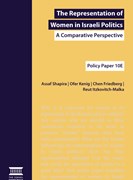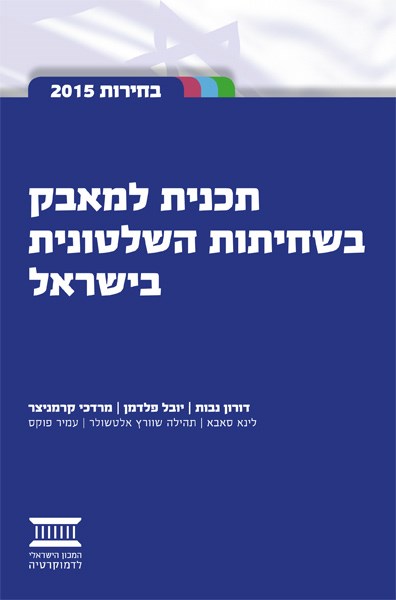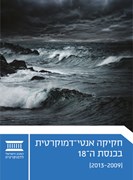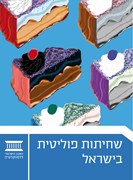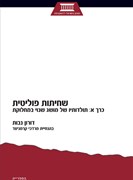

Publications Regarding Members of Knesset
Articles

Replacing a Knesset Committee Chair
Written By: Avital Friedman
As the Likud party seeks to replace MK Yuli Edelstein as Chair of the Knesset Foreign Affairs and Defense Committee, this Q&A lays out everything you need to know about the role of a Committee Chair, and the the replacement process and history relevant to the current situation.
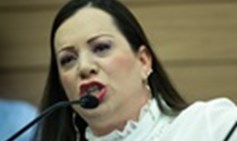
Putting Knesset Members Above the Law
Written By: Dr. Amir Fuchs
The amendment to the Immunity Law proposed by MK Tally Gotliv would allow MKs to grant themselves immunity from criminal and civil prosecution, undermining equality before the law and creating inherent conflicts of interest that disproportionately protect coalition members from accountability.

76 Years of the Knesset | Test Your Knowledge
Written By: Prof. Ofer Kenig, Dr. Chen Friedberg, Avital Friedman
The Knesset, Israel's parliament, marks 76 years today. Over the decades, it has shaped the nation's laws, policies, and political landscape, evolving alongside Israel and the modern world. How much do you know about the Knesset and its history? Test your knowledge.
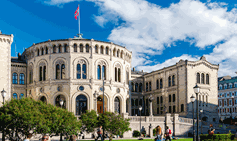
The “Norwegian Law”: Problematic, Yes—But a Necessary Evil
Written By: Dr. Assaf Shapira
The “Norwegian Law” has many troubling and significant downsides - however Israel's parliament is simply too small.

A Preview of the 25th Knesset
Written By: Prof. Ofer Kenig
Fourteen days after the election, the 25th Knesset will be sworn in. This is the fifth Knesset inauguration in less than 3½ years—testimony to the political crisis which Israel is undergoing. How many new MKs are there? Will the stagnation in female representation continue? How many MKs have a background in local government?

Disqualification of Knesset Lists and Candidates: Q&A
Written By: Prof. Yuval Shany, Dr. Amir Fuchs
Disqualifying candidates and lists for the Knesset violates one of the most fundamental democratic rights, the right to vote and to be elected. Therefore, it must be done with the utmost care, judgment and objectivity. Who can reject candidates and lists for the Knesset, and on what is the criteria? IDI experts answer these questions.

Who Does the Seat in Parliament Belong to The Party Faction or its Individual Member?
Written By: Dr. Assaf Shapira, Avital Friedman
Israel has a closed electoral system, so that on election day, the country’s citizens do not vote for individual representatives, but rather-for a list, which subsequently evolves into a faction in the Knesset. What does that mean in terms of balancing the power between the party and individual parliament members?

Happy 73rd Birthday, Knesset!
Written By: Prof. Ofer Kenig
As the Knesset, Israel’s legislature, marks its 73rd birthday, IDI is taking the opportunity to reflect on two of its characteristics; the social composition of its membership and its size as compared with other countries.

How Many Knesset Members Have Lasted in Politics Since 2009?
Written By: Prof. Ofer Kenig
The data reflects a very high turnover rate in Israel's political system. This has both positive and negative aspects. On the one hand - a robust political system should be refreshed - but it can also be a symptom of a "sick" system

Parliaments Around the World
Written By: Dr. Chen Friedberg, Avital Friedman, Dr. Assaf Shapira, Dr. Shany Mor
As the Knesset struggles to resume its work, IDI took a look at how parliaments around the world are putting into place processes and mechanisms that enable them to operate during the coronavirus pandemic so they can fulfill the vital role they play in democracies.

All About Splits
Written By: Dr. Assaf Shapira
How can MKs 'cross the floor' and what sanctions might they face? An explainer by Dr. Assaf Shapira
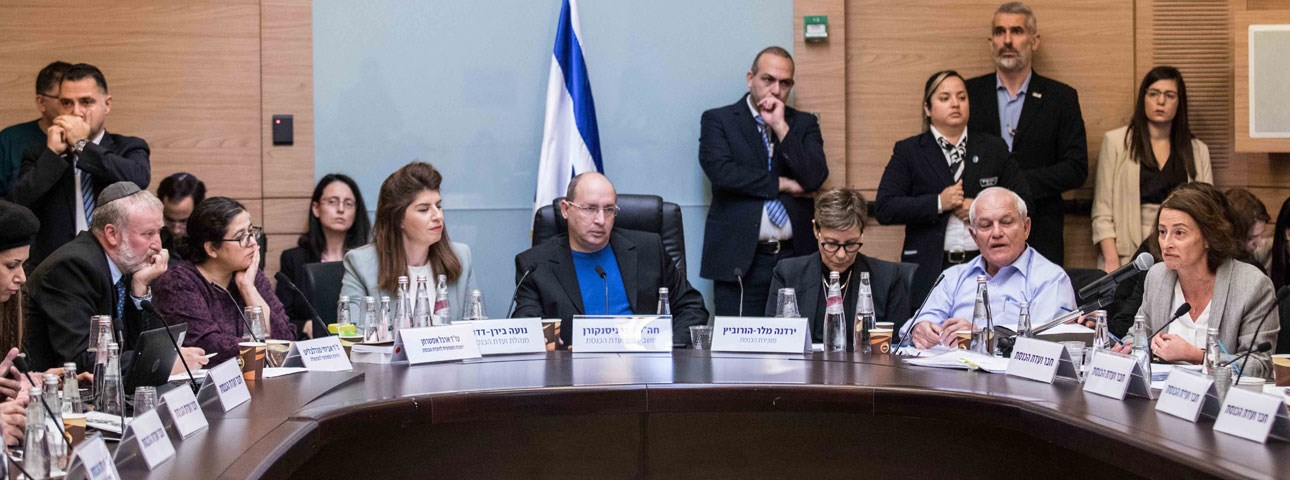
The Pot Calling the Kettle Black
Written By: Prof. Yedidia Z. Stern
In the case of a MK against whom the attorney-general has decided to file an indictment, the members of his party and of his Knesset bloc vote as one.

Rabbis in Politics—A Disaster for Both
Written By: Dr. Shuki Friedman
Rabbis are not necessarily any better or worse than other politicians.

What Will the 23rd Knesset Look Like?
Written By: Prof. Ofer Kenig
New record low of number of lists; Left-Center shrinks from eight lists in 2013 to three today; women’s’ representation continues to dither – less than 30 women MKs are expected
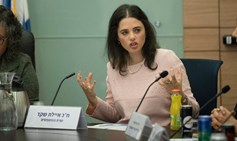
Women Representation in the 23rd Knesset
Written By: Dr. Assaf Shapira
After the party lists have been submitted Dr. Assaf Shapira analyzes expected representation of women in the 23rd Knesset based on the September 2019 elections

The Knesset is not a Sanctuary
Written By: Dr. Amir Fuchs
This claim was first put forth in a letter from the Knesset’s legal adviser, Eyal Yinon, to the speaker of the Knesset with regard to the situation of MK Haim Katz.
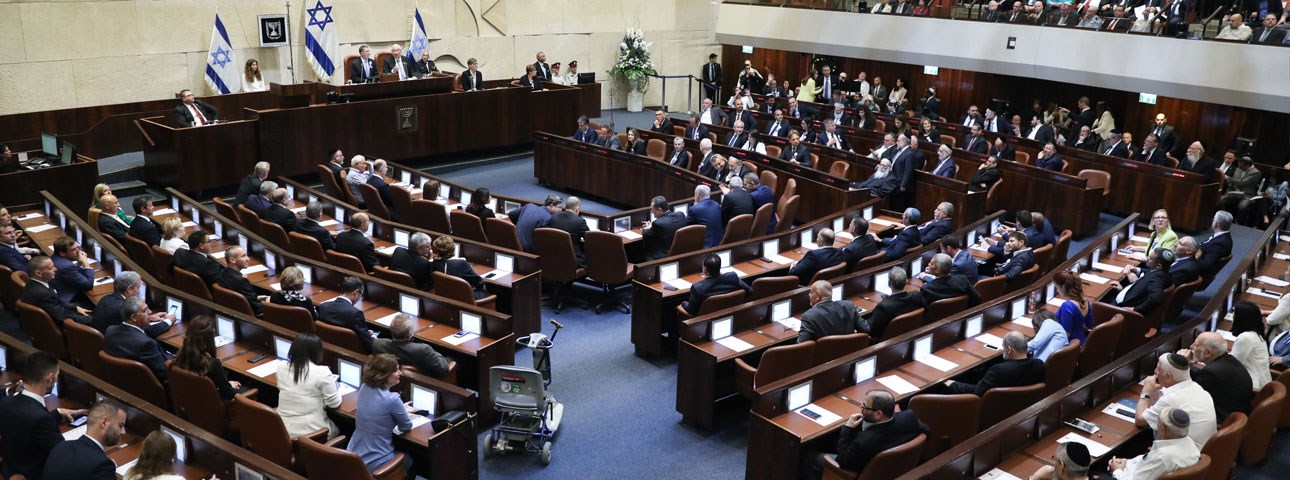
What will the new Knesset look like?
Written By: Prof. Ofer Kenig
All in all, the human landscape of the Knesset continues a trend of an improved representation, which better reflects the heterogenous Israeli society. Still, several groups are still under-represented, mainly women, non-Jews, young adults and “Russians”.
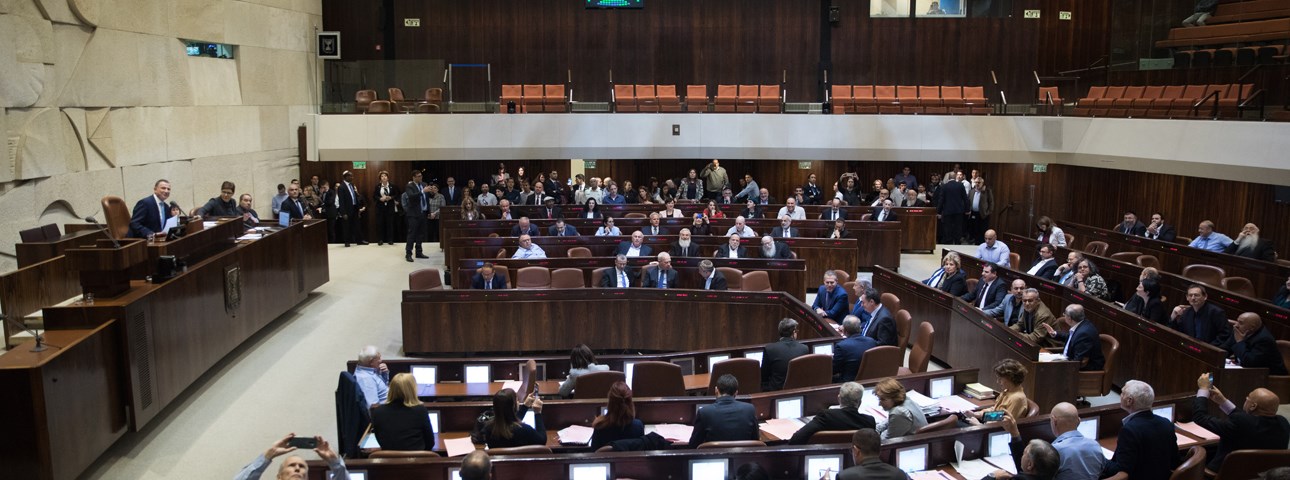
So Few MKs, So Much to Do: The Knesset is Dysfunctional
Written By: Dr. Chen Friedberg
Lawmakers sit on too many committees and propose too many laws. The fix starts with government members quitting the Knesset

The 20th Knesset in Numbers
Written By: Dr. Chen Friedberg, Avital Friedman, Niv Shoval
The current paper presents data on the parliamentary work of the MKs and parties in the outgoing Knesset. All the information is based on data taken from the Knesset archives and the Knesset’s Research and Information Center which are open to the public

Arab Votes for the 21st Knesset
Written By: Dr. Arik Rudnitzky
Arab turnout for the vote was the lowest in a decade – only 49% participated in the elections for the 21st Knesset – Arik Rudnitzky summarizes

Reduce the Number of Ministers
Written By: Prof. Ofer Kenig
As talks begin toward the formation of a new government – it is an opportunity to call on the Prime Minister to keep the number of Ministers low

It’s time to change how we select Knesset candidates
Written By: Prof. Gideon Rahat
Primaries often don't reflect the true will of actual party supporters -- voters should weigh in on Election Day
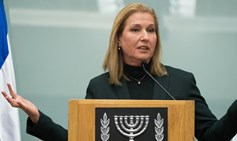
Israeli Politics is Still a (Mostly) Boys’ Club at the Top
Written By: Prof. Ofer Kenig
Despite record numbers in the Knesset, few females hold senior government posts — their absence leaves Israel worse off.
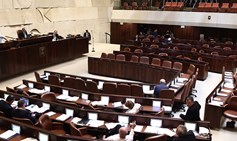
A Storm in a Teacup
Written By: Dr. Chen Friedberg, Dr. Assaf Shapira
Statesmanship or lack thereof has been in the background of a long list of scandals and incidents that have rocked Israeli politics in recent years

The Knesset at Age 69: Still Struggling for the Public's Trust
Written By: Lahav Harkov
While members of Knesset represent Israel's diverse society, they're still seen as self-interested and ineffectual by the public.

IDI Presents Outstanding Parliamentarian Award to MKs Elharar and Folkman
Knesset Speaker MK Yuli Edelstein: "It's time to bring the rules of the game back to the Knesset
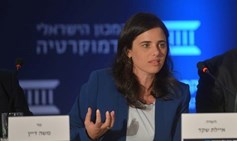
IDI Praises MK Ayelet Shaked: Time to Reduce Private Legislation
The Israel Democracy Institute praises Justice Minister Ayelet Shaked, who at the Israel Bar Association conference in Tel Aviv on Aug. 31 railed against overregulation and over-legislation.

Outstanding Parliamentarian Award
The Israel Democracy Institute on Tuesday will bestow the
Outstanding Parliamentarian Award on two members of the current Knesset: Minister Moshe Gafni (United Torah Judaism) and MK Ayelet Nahmias-Verbin (Zionist Union).

MK Suspension Bill: Anti-Democratic to the Core
Written By: Dr. Amir Fuchs
Last week, the Knesset Law, Constitution and Justice Committee began deliberating over a proposal that would fundamentally alter the Basic Law – The Knesset: The MK Suspension Bill. If passed, the proposed bill would grant members of Knesset the power to remove another parliamentarian. This op-ed originally appeared in the Jerusalem Post.

The 2015 Knesset: Can New Brooms Make a Clean Sweep?
Written By: Dr. Chen Friedberg
Israel's 20th Knesset will have 39 new members. Will this infusion of new blood improve the Knesset's performance? Dr. Chen Friedberg explores some of the issues that may impede the ability of these new Knesset members to "clean up" the Knesset.
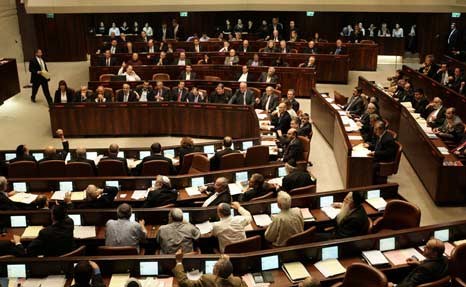
The Social Composition of the 20th Knesset
Written By: Prof. Ofer Kenig
On Tuesday March 30, 2015, the 120 members of the 20th Knesset will be sworn in. About one third of them are new faces, and almost a quarter are women. How many religious MKs are in the Knesset? Which is the "youngest" parliamentary group? Dr. Ofer Kenig explores the demographic attributes of the 120 members of Knesset.
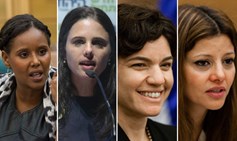
Women's Representation in the Knesset: Still Increasing But Not Fast Enough
Written By: Prof. Ofer Kenig
Dr. Ofer Kenig analyzes the predicted rate of representation of women in the 20th Knesset as compared to previous Knessets and as compared to the rate of women's representation in the parliaments of other democracies.

Legal Opinion on the "Zoabi Bill"
Written By: Prof. Mordechai Kremnitzer, Dr. Amir Fuchs
A summary of a legal opinion on a proposed amendment to Basic Law: The Knesset that was submitted by Prof. Mordechai Kremnitzer and Dr. Amir Fuchs to the Ministerial Committee on Legislative Affairs.
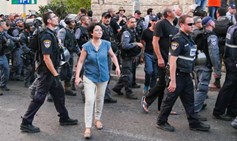
On the Punishment of MK Hanin Zoabi by the Knesset Ethics Committee
Written By: Dr. Assaf Shapira
IDI researcher Assaf Shapira provides background information on the decision of the Knesset Ethics Committee to suspend MK Hanin Zoabi for statements she made about the kidnapping and murder of three Jewish teenagers and about Operation Protective Edge.
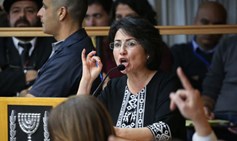
Heart vs. Head: The Case of Hanin Zoabi
Written By: Prof. Mordechai Kremnitzer, Admiral (Res.) Amichay (Ami) Ayalon
Prof. Mordechai Kremnitzer and Admiral Ami Ayalon argue that while the heart has difficulty defending MK Hanin Zoabi's freedom of expression, the head demands that we object to the decision to remove her from parliamentary activity for six months.

Women’s Representation in the Knesset: Is it Sufficient?
Written By: Prof. Ofer Kenig
The 19th Knesset is expected to have a record number of women MKs. Nonetheless, the percentage of women in the Knesset is lower than that found in the parliaments of most other established democracies. IDI researcher Dr. Ofer Kenig provides an overview of the situation.

The Democratic Year in Review: The Knesset's Missed Opportunity
Written By: Prof. Yedidia Z. Stern
The period of the Jewish High Holidays is a time of reflection and introspection. In this op-ed, originally published in Yedioth Ahronoth on September 26, 2011, IDI Vice President of Research Prof. Yedidia Z. Stern reflects on the gap that emerged between the agenda of the Knesset and the agenda of the Israeli public during 2010-2011 and expresses hope that the message of the social-economic protest of the summer of 2011 will point the Knesset in the right direction in the year to come.

The Limits of Party and Coalition Discipline
Written By: Reuven Rivlin
How much parliamentary independence should Knesset members have? To what extent must they toe their party's line? At a time when party discipline and coalitional discipline play a decisive role in determining the fate of Israeli policy and proposed legislation, MK Reuven (Ruby) Rivlin, Speaker of the Knesset, calls on parties to allow Knesset members to remain true to their conscience and to their role as representatives of the people.

Women in the 18th Knesset
Written By: Prof. Ofer Kenig
IDI Researcher Dr. Ofer Kenig analyzes the results of the 2009 Israeli general election elections as they pertain to women's representation in the Knesset.
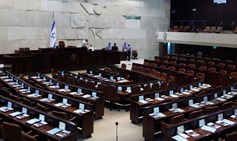
A Weak and Inefficient Knesset
Written By: Dr. Chen Friedberg
In a democracy, parliaments are supposed to not only pass laws but also engage in oversight; that is, to ensure that legislation is implemented and identify deficiencies in the government’s work.

Out of Sight: How Do Israeli Parties Perform on Social Networks?
Yesh Atid, Zionist Camp and Meretz have the strongest online presence, while the Joint List and Yisrael Beiteinu lag behind.
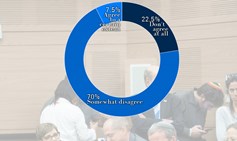
What Do Parliamentary Aides Think of the Work of Members Of Knesset?
Researchers surveyed aides in 40 Knesset offices. Of those, 92% of aides says they think MKs do not come prepared for Knesset committee meetings and that the Knesset is not succeeding in properly supervising the government (95%).
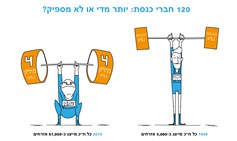
Happy Birthday, Knesset!
Written By: Prof. Ofer Kenig
As the Knesset, Israel’s legislature, marks its birthday, IDI takes the opportunity to consider two aspects about it: its members’ social composition and its relative size.

